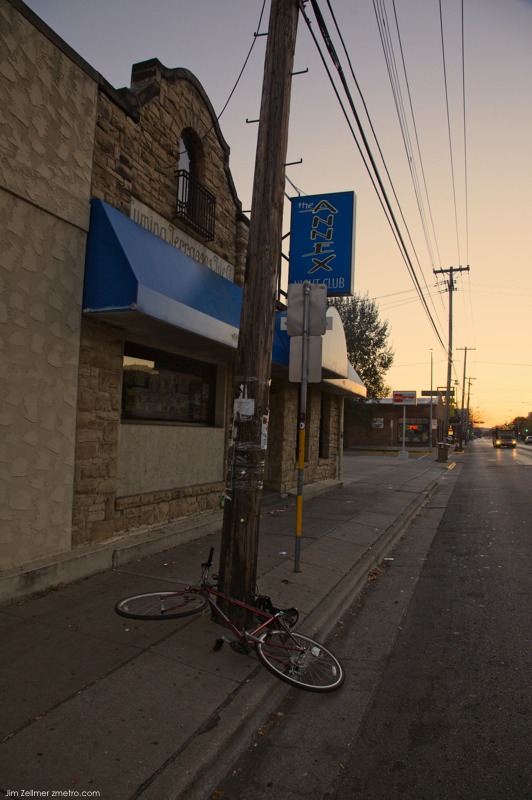From its beginning as a sailboat equipment company to its success in capturing the admiration and loyalty of legions of landlubbers, Lands’ End has stayed true to its famous mantra, “Guaranteed.Period.®” In addition to the company’s focus on quality, they have kept their eyes on their customer. In 2008 they were named to the NRFF-AMEX Top Ten for consistent excellence in customer service and retained that standing in 2009. To find out how this predominately catalog and Internet retailer continues to win accolades from consumers the world over, we caught up with Nick Coe, President of Lands’ End. You’ll find “quality” resonates through the answers of this top exec, who fell in love with retailing when he was intrigued by quality in “great tailoring or a perfect pair of jeans” – products he couldn’t afford.
In the five years NRF Foundation and American Express have conducted the Customers’ Choice survey, Lands’ End has consistently been ranked in the top ten. How do you continue to delight your customers year after year?
Category: Culture
Beautiful Fall Colors


On China’s Renminbi
As my reference to the Japanese yen might suggest, I am pretty skeptical about the likelihood of this happening, at least with some of the more excited predictions. So, by the way, is the ADB, whose recent report (“The Future Global Reserve System — An Asian Perspective”), suggests that by 2035, the RMB may comprise about 3 to 12 per cent of international reserves. This is a pretty reasonable prediction, in my opinion, and far from the more feverish claims we see reported almost daily.
If the renminbi ever becomes a major trading or reserve currency, it is going to take a long time for this to happen and will require a radical transformation of the Chinese economy and the role of the government. This may seem like a surprising statement. After all nearly every week we see reports about a new breakthrough for the renminbi, and almost every day someone important somewhere speculates publicly about what the world will be like when (never if) the renminbi displaces the dollar.
But away from all “qualitative” arguments about why this is unlikely, and there are many, I think there is a problem with the arithmetic of reserve currency accumulation. If the rest of the world is going to use the renminbi as a reserve or trading currency, clearly it needs a mechanism by which to accumulate renminbi. This is something on which a surprisingly large share of people who talk about the future of reserve currencies don’t seem to focus.
Big City Sunset

Another Gorgeous Madison Weekend!



Future Shock at 40: What the Tofflers Got Right (and Wrong)
They predicted the “electronic frontier” of the Internet, Prozac, YouTube, cloning, home-schooling, the self-induced paralysis of too many choices, instant celebrities, and the end of blue-collar manufacturing. Not bad for 1970.
In the opening minutes of Future Shock, a 1972 documentary based on the book of the same name, a bearded, cigar-puffing, world-weary Orson Welles staggers down an airport’s moving walkway, treating the camera like a confidante. “In the course of my work, which has taken me to just about every corner of the globe, I see many aspects of a phenomenon which I’m just beginning to understand,” he says. “Our modern technologies have changed the degree of sophistication beyond our wildest dreams. But this technology has exacted a pretty heavy price. We live in an age of anxiety and time of stress. And with all our sophistication, we are in fact the victims of our own technological strengths –- we are the victims of shock… a future shock.”
Lunch with Phoebe Philo
Phoebe Philo, the 37-year-old creative director of Céline, is surprisingly frail for someone who a year ago accomplished the Herculean feat of turning the river of trend and washing fashion’s Augean stables clean of decorative bling. A 2010 nominee as British Designer of the Year, she was also behind one of the most heralded collections at last week’s women’s wear shows in Paris.
Medium height, with wispy brown hair and prominent cheekbones, her thin frame swamped by a black leather jacket and a long, man’s shirt over slouchy black trousers, she can seem almost fragile. On the other hand, she has chosen St John, a restaurant in Clerkenwell, London, known for its “nose to tail” menu of offal and other meaty innards, so clearly she has a carnivorous, protein-packing side.
“Well, it’s run by a friend,” she says when she arrives in the stripped-down white space and sits at the paper-covered table. “And it has a straightforwardness that I quite like. It’s very to-the-point.”
To wit: there are “peas in the pod” on the menu. Literally. Undressed, unshelled, peas in the pod, like the kind you get in the market. Or, as Philo says, like the kind that might have “come right from the garden”. She orders some of those with fresh lemonade – the kind they make in America, with just lemon juice, water, and sugar – plus a green salad, some cured mackerel and a roast beef sandwich, because she “rather fancies some white bread”. I opt for lemonade, some cauliflower and lentils, a green salad and a cheese plate. Philo looks at me appraisingly.
Teddy, J.P. and Henry
The last seven years have had much in common with the period of 1893 to 1900. But the turmoil this country experienced during the first few years of the 20th century also seems to be mirrored in the events of today.
Certainly the nation once witnessed the rise of the more radical elements, whether they were far-left anarchist movements or center-left progressives. Those movements attested to a very real battle being waged for the heart and soul of what the American Century would become. Its apex was marked by one president’s assassination and by the dreams of an inventor who wanted to revolutionize our mobility.
Given what has transpired over the last two years, it is haunting to read Teddy Roosevelt’s letter to Congress and his personal thoughts on companies whose sole reason for existence is to make their owners wealthy without regard to the damage they were doing to society. One wonders what would have happened if today’s Wall Street Masters of the Universe had been confronted in a White House with the same resolve that Roosevelt showed to J.P. Morgan.
Currency Wars
If the world is on the brink of an out-and-out currency war, a variety of battalions has been out on manoeuvres in the past few weeks. The Bank of Japan, after six years off the battlefield, has launched a fusillade of intervention to hold down the yen in foreign exchange markets. Brazil used the guerrilla tactic of doubling taxes on capital inflows to stop the real surging. India and Thailand warned that they too might bring heavy ordnance into play.
The main combatants, the US and China, continued to exchange rhetorical salvos. Washington (and Brussels) identified undervalued currencies such as the renminbi as a prime cause of global macroeconomic imbalances. Beijing retorted that such aggression risked bringing mutual destruction upon the great economic powers.
On Monday Dominique Strauss-Kahn, managing director of the International Monetary Fund, voiced his concern. “There is clearly the idea beginning to circulate that currencies can be used as a policy weapon,” he said. “Translated into action, such an idea would represent a very serious risk to the global recovery.”
Condoleezza Rice on German Reunification
In a SPIEGEL interview, former United States Secretary of State Condoleezza Rice discusses America’s fight for German reunification, Soviet leader Mikhail Gorbachev’s woes at the time, Chancellor Helmut Kohl’s merits and the later mistakes of his successor, Gerhard Schröder.
SPIEGEL: Madame Secretary, when the Berlin Wall fell in 1989, European nations like Great Britain and France were very worried about the prospect of German unification. America was the only country that didn’t appear to be concerned. Why not?
Condoleezza Rice: The United States — and President George H.W. Bush — recognized that Germany had gone through a long democratic transition. It had been a good friend, it was a member of NATO. Any issues that had existed in 1945, it seemed perfectly reasonable to lay them to rest. For us, the question wasn’t should Germany unify? It was how and under what circumstances? We had no concern about a resurgent Germany, unlike the British or French.
SPIEGEL: Because a unified German was in America’s strategic interest?
Rice: If you were going to have a Europe that was whole and free, you couldn’t have a Germany that was divided. So, with the possibility that Soviet power was going to be receding from Europe, it made perfectly good sense to try to achieve reunification on terms that nobody would have thought thinkable, even four or five years before.